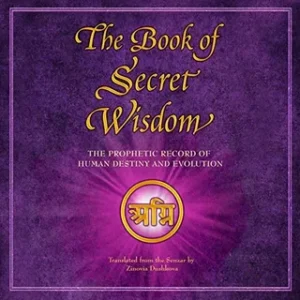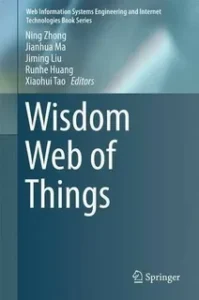What Can We Learn from “Meditations” by Marcus Aurelius?
Marcus Aurelius: The Philosopher King
Marcus Aurelius, one of Rome’s most revered emperors, is perhaps best known today for his philosophical reflections in “Meditations”, a collection of personal writings that have stood the test of time. As a ruler, he faced numerous challenges, from military campaigns to political intrigues, and his writings provide profound insight into the Stoic philosophy that guided him through these difficulties.
“Meditations” was not originally meant for public consumption. It was a series of private notes that Aurelius wrote to himself as a way to clarify his thoughts, remind himself of his duties, and maintain his own moral compass. Despite its personal nature, the text has had an enduring impact on leaders, philosophers, and anyone seeking a deeper understanding of how to live a virtuous life.
The Core Teachings of Stoicism
At the heart of Stoicism, the philosophy Marcus Aurelius followed, is the idea that we cannot control external events, but we can control our responses to them. The Stoics emphasized the importance of virtue, wisdom, and self-control in the face of life’s challenges. Aurelius’ “Meditations” embodies these Stoic ideals, offering practical advice on how to remain calm and virtuous even during times of hardship.
1. Control What You Can, Accept What You Cannot
One of the most powerful Stoic principles expressed in “Meditations” is the idea of accepting the things we cannot control. Aurelius repeatedly reminds himself to focus on his own actions, thoughts, and attitudes, rather than trying to control the external world, which is often unpredictable and beyond our influence.
In one of his reflections, Aurelius writes, “You have power over your mind, not outside events. Realize this, and you will find strength.” This reminder encourages us to take responsibility for our own mental state and emotional reactions, rather than letting external circumstances dictate our happiness or peace of mind. In today’s world, where external stressors—whether personal or global—can feel overwhelming, this lesson remains invaluable.
2. Live in Accordance with Nature
Another central tenet of Stoicism is the idea of living in harmony with nature—both the natural world and human nature. For Stoics like Aurelius, this meant understanding that life is impermanent and subject to change, and that we must accept these realities gracefully.
Aurelius writes, “Accept whatever comes to you woven in the pattern of your destiny, for what could more aptly fit your needs?” He reminds himself—and his readers—that life’s challenges, losses, and setbacks are part of a natural order, and rather than resisting them, we should embrace them as opportunities for growth and self-improvement.
By accepting the natural flow of life, we can live more peacefully and find greater purpose in every moment. This philosophy encourages us to relinquish the need for control over things that are outside our grasp and instead focus on living virtuously in the present moment.
Applying Stoicism to Daily Life
While Stoicism was developed over two thousand years ago, its principles have profound relevance in modern life. Aurelius’ “Meditations” offers practical advice that anyone can apply, regardless of their personal circumstances or background. Whether dealing with stress, facing challenges in relationships, or striving to lead a fulfilling life, Stoic teachings can help individuals develop resilience and maintain clarity in the face of adversity.
3. Self-Reflection and Personal Growth
One of the most striking features of “Meditations” is its emphasis on self-reflection. Marcus Aurelius constantly questions his own behavior and motives, striving to align himself with the Stoic virtues of wisdom, courage, justice, and temperance.
He asks himself, “What am I doing now? Why am I doing it?” and reminds himself to stay true to his higher principles. This kind of self-inquiry encourages readers to constantly evaluate their actions and align them with their values. By practicing self-reflection, we can better understand our motivations, identify areas for personal growth, and make more intentional decisions.
In today’s world, where distractions and external pressures often cloud our judgment, taking the time to engage in mindful self-reflection can lead to greater self-awareness, emotional intelligence, and a deeper sense of purpose.
4. Resilience in the Face of Adversity
Marcus Aurelius’ life was filled with challenges, from political strife to military conflict, yet he remained steadfast in his Stoic beliefs. He believed that hardship was an essential part of life and that individuals should face adversity with courage and equanimity.
Aurelius writes, “The impediment to action advances action. What stands in the way becomes the way.” This powerful message teaches us that obstacles are not necessarily to be avoided, but can instead be used as stepping stones for growth. In modern life, setbacks—whether personal, professional, or emotional—often feel like insurmountable barriers. Yet Aurelius’ message encourages us to embrace these challenges, seeing them as opportunities to develop strength and resilience.
The Enduring Impact of “Meditations”
“Meditations” has had an enduring influence on generations of thinkers, leaders, and individuals seeking wisdom. Its Stoic teachings are reflected in various modern self-help philosophies, mindfulness practices, and leadership strategies. The book has influenced figures such as Nelson Mandela, Bill Clinton, and Tim Ferriss, all of whom have cited Aurelius’ writings as a source of inspiration in overcoming challenges and leading with clarity and integrity.
Aurelius’ personal reflections continue to inspire readers today, reminding us of the power of philosophy in daily life. Whether you are facing personal hardships, navigating leadership challenges, or simply seeking to live a life of greater virtue and purpose, “Meditations” offers timeless wisdom that can guide you on your journey.
Conclusion: The Wisdom of Marcus Aurelius
In “Meditations”, Marcus Aurelius offers profound insights into how we can live virtuous, meaningful lives despite the challenges we face. His Stoic teachings on self-discipline, resilience, and mindfulness offer valuable lessons for anyone seeking greater peace, clarity, and purpose. Through self-reflection and the acceptance of life’s impermanence, we can cultivate inner strength and navigate the complexities of the modern world with wisdom and grace.









Post Comment